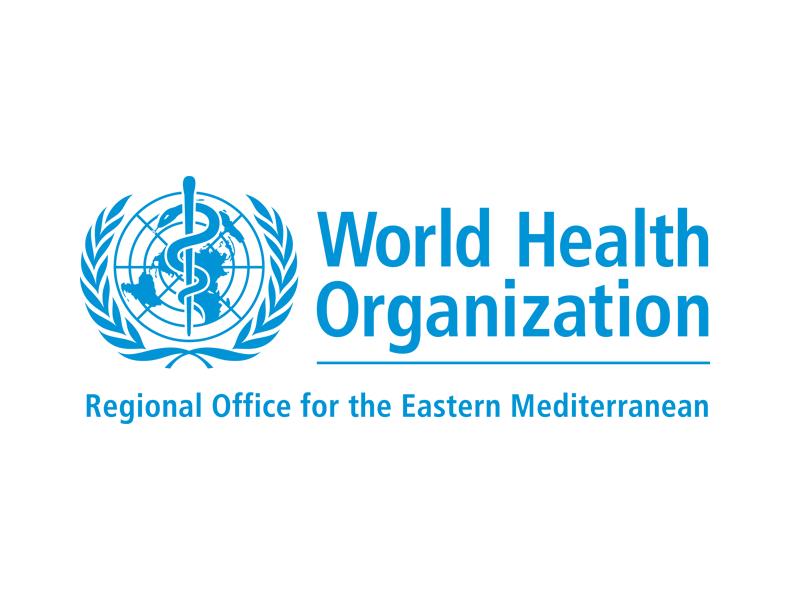
17 October – Today, Members of WHO’s Regional Committee for the Eastern Mediterranean concluded their 65th Session in Khartoum, Sudan, endorsing the Regional Director’s annual report on the work of the Organization with Member States, and noting with appreciation the Regional Director’s Vision 2023 to promote Health for All by All and his call for solidarity and action
In his closing remarks Dr Ahmed Al-Mandhari, WHO Regional Director for the Eastern Mediterranean emphasized the need for collective work to materialize the Vision 2023 on the ground. “We meant the Vision of Health for All by All to be interactive, with WHO, Member States and partners all having roles and responsibilities. We are determined to implement it, but we need your support, efforts, insights and wisdom,” Dr Al-Mandhari said. “I would like to express my thanks and appreciation for Sudan’s warm hospitality and support in hosting the Regional Committee in Khartoum. I also thank all partners: United Nations sister agencies, regional and international organizations and civil society for their active participation and assure you all of our support and collaboration to enhance our work for the well-being of our Region and beyond.”.
Members of the Regional Committee endorsed a resolution on a regional approach to implementing WHO’s Thirteenth Global Programme of Work 2019–2023. The resolution calls for advancing universal health coverage, protecting people from the impact of health emergencies, promoting health and well-being, and optimizing WHO’s performance: countries at the centre.
The resolution urges Member States to formulate a national vision for universal health coverage and a roadmap towards its realization, taking into account country-specific health challenges as well as the economic situation and people’s preferences.
Members also endorsed four regional frameworks for action on obesity prevention, tobacco control, health and the environment, and preconception care.
The prevalence of smoking is expected to decline by 2025 in all WHO regions except the Eastern Mediterranean Region. The projected increase in the Region is due to heavy use among young people, and poses a huge challenge in achieving the global voluntary target of reducing tobacco use by 30% by 2025. The Members called for greater political commitment from the highest level and to accelerate the implementation of the WHO Framework Convention on Tobacco Control.
Noncommunicable diseases are responsible for two thirds of all deaths in the Region. Most of these deaths are caused by preventable risk factors including unhealthy diet, tobacco use and physical inactivity. Over 38% of adults and 86% of adolescents are not physically active enough, 50% of women and 44% of men are overweight or obese, and 18% of children under the age of five are overweight. The regional framework for action on obesity prevention presents evidence-based, cost-effective public health interventions and strategies to help prevent overweight and obesity at regional and population levels.
Environmental risk factors such as air, water and soil pollution, chemical hazards, climate change and radiation exposure account for about 22% of the total burden of disease in the Region. Around 854 000 people in the Region die prematurely every year as a result of living or working in unhealthy environments – nearly 1 in 5 of total regional deaths; more than half of these are due to air pollution. The regional framework for action on health and the environment proposes actions to reduce the burden of morbidity, disability and premature mortality caused by environmental risks.
Although the majority of deaths from noncommunicable diseases occur in adulthood, many originate in early life – as early as preconception. Preconception care is the provision of biomedical, behavioural and social health interventions to women and couples before conception occurs with the aim of improving maternal and child health, in both the short and long term. The regional framework for action on preconception care presents a set of interventions to be adapted and implemented by countries to improve maternal, neonatal and child health in the Region.
The Regional Committee endorsed a framework on effective engagement with the private sector for health service delivery. The private health care sector provides both ambulatory and hospital services in the Region; for many countries, it is the major provider of health services. However, it has grown with little policy direction or planning for how it can contribute to advancing universal health coverage. The framework outlines a range of tools that countries can use to maximize the potential of private health care providers to deliver high quality health services without exposing people to financial hardship.
Another resolution adopted by the Regional Committee urged Member States to develop a comprehensive plan for the institutionalization and implementation of the Health in All Policies approach, and to build the capacity of public sector institutions to adopt the approach and to share their experiences through regional platforms. Members requested the Regional Director to provide technical support to Member States for the capacity-building of the relevant public sector institutions, and for the development of guidelines and tools to support Member States in implementation of the Health in All Policies approach.
The 66th Session of the WHO Regional Committee for Eastern Mediterranean will be held in Tehran, Islamic Republic of Iran, in October 2019.










